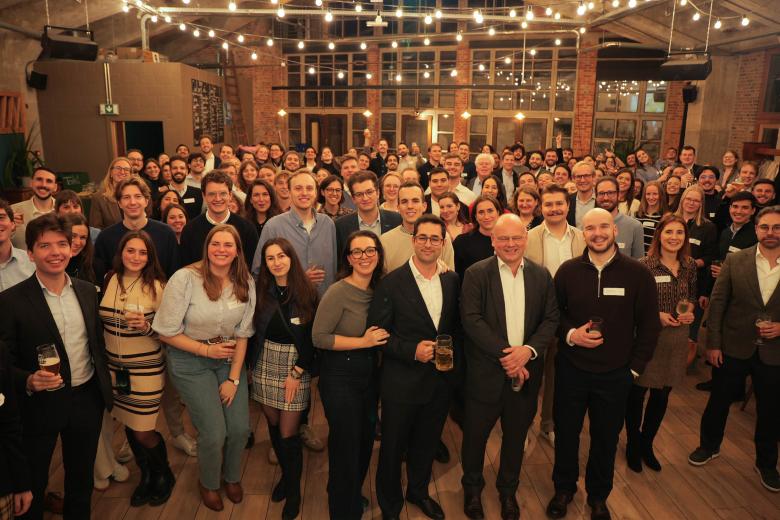Don't mind the gap: co-creating impact in the ecosystem of BISCI
Interview with Gerwin Zomer - Program Director, Logistics Ecosystem, and Adriana Saraceni - Post-doctoral Researcher.
In 2019, Maastricht University and the Province of Limburg initiated the set up of The Brightlands Institute for Supply Chain Innovation (BISCI), a collaboration with Fontys University of Applied Sciences and TNO - the Dutch Institute of Applied Sciences. BISCI was founded to accelerate the regional economy's innovative power in the Supply Chain Management and Logistics field. It is organised around the critical economic clusters in the Province: Logistics and Agrifood, Chemical SCM, and Healthcare SCM, and operates through 'knowledge hubs' such as 'greenhouse gas,' 'circularity,' and 'digital transformation.' BISCI brings the business community, academics, students and representatives from various governments to work together through open innovation and co-creation. It is closely linked to MSCM, and today we are talking to Gerwin Zomer and Adriana Saraceni - to explore the intricacies of their roles, gain insight into their daily challenges, uncover the passion that drives them in their work, and better understand BISCI in action.

- So, Gerwin, Adriana, first of all - thank you for agreeing to this interview! Please tell us, what are your roles and responsibilities at BISCI?
Gerwin: My role is ecosystem Director for the BISCI Logistics Ecosystem, which focuses on transforming the logistics industry to be future-proof, aiming to address the question: how can we accelerate some major desirable transitions, such as the energy transition and the transition towards a circular economy?
In my role, I lead and steer the Ecosystem in such a way that we create market impact (economy), social impact (society), scientific impact (e.g. publications, papers, PhD research), and educational impact (feeding curricula, engaging students in the project portfolio).
It's important to note that this multi-faceted impact ambition differs from the typical organisational structure of a university. To achieve impact, it is essential to cultivate a close relationship with industry partners within the Ecosystem, which means mobilising, expanding, and nurturing the network, as well as consistently aligning their business challenges with our innovation roadmap.
The ultimate goal is to develop a balanced and comprehensive project portfolio guided by Innovation Roadmapping and Orchestrating Logistics Ecosystem Innovation principles. By doing so, we aim to ensure that our initiatives effectively address industry needs while driving innovation and making meaningful contributions to the economy, society, academia, and education.
Adriana: I'd say I have a dual role primarily focusing on education and research impact within BISCI. As mentioned by Gerwin, BISCI adopts a joint approach to its mission, which includes bridging the gap between academia and the external world.
As a scientific researcher involved in education, it is my core responsibility to facilitate this connection. I am deeply passionate about providing opportunities for the younger generation to engage in research. I actively incorporate and mentor students from our bachelor's and master's programs, fostering research initiatives that closely align with our industry partners within our Ecosystem. My role focuses on supervising assignments and theses, guiding our students' educational and social development, and striving for both social and educational impact and scientific outcomes.
In addition to that, I take the lead in executing external projects within BISCI's Logistics Ecosystem. I assist scientific R&D in projects such as The Last Mile Delivery under the Holland Robotics Logistic consortium and academic research for projects such as Pioneers (European Union's Horizon 2020 under Grant Agreement 101037564).
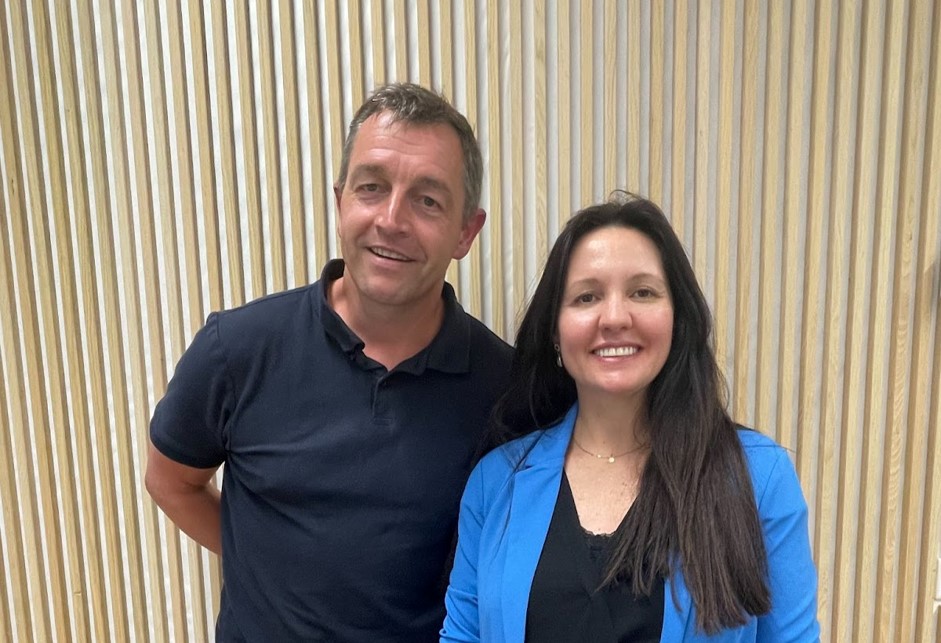
- Indeed sounds like exciting and impactful jobs! How did you join BISCI? What was your way to it?
Gerwin: As of 2021, as a TNO expert, I was partially involved in the set-up of logistics activities in BISCI. During a joint strategy meeting we concluded we actually need a dedicated subject matter owner with a strong network to lead this Ecosystem and give direction to its growth. Shortly after that strategy meeting, the BISCI Management Team asked me for the job. Well, the rest is history.
Adriana: With BSc in Economics, MSc and PhD in Industrial Engineering, specialised in sustainable business ecosystems, my research experience of 11 years has been focused on Innovation, SMEs, regional development, and Industrial Ecology, bridging the fields of Economics and Engineering. In 2019, I was a technical lead for an Industrial Symbiosis project in Ireland. Meanwhile, BISCI was seeking experts in sustainable ecosystems, and MSCM required a research project lead with an academic background. Thanks to Dominik, Lieven, and Diogo, after multiple assessment rounds, my profile proved to be the fit at the opportune moment. Currently, my research at MSCM and my role at BISCI allow me to integrate my previous expertise with a holistic perspective on complex systems.
- All roads lead to BISCI! Thank you for sharing! What is unique and distinctive about working at BISCI?
Gerwin: It is pioneering in a highly entrepreneurial environment with nothing in this collaboration institutionalised, so everything is open, everything is possible, but it's all up to you to make it happen! My first observations: MSCM has rather limited experience with applied research and technology-driven innovation. Fontys has little experience with European applied research, and TNO has limited experience and network in the region and with innovation in supply chain management (more focused on distribution logistics). Together it offers all kinds of opportunities but also challenges to overcome.
Adriana: Here, I am granted flexibility and endless opportunities to shape my own projects and initiatives, allowing me to explore innovative ideas. Working at BISCI is a unique experience that diverges from traditional work environments. The collaborative and interdisciplinary nature of BISCI is something I truly value, as it brings together experts from academia, industry, and research organisations. This dynamic environment fosters brainstorming ideas and enables the development of comprehensive supply chain solutions. Collaborating with external partners in academia and industry plays a crucial role in translating our work into real-world applications and making a tangible impact. It is an essential part of what makes BISCI's work truly meaningful.
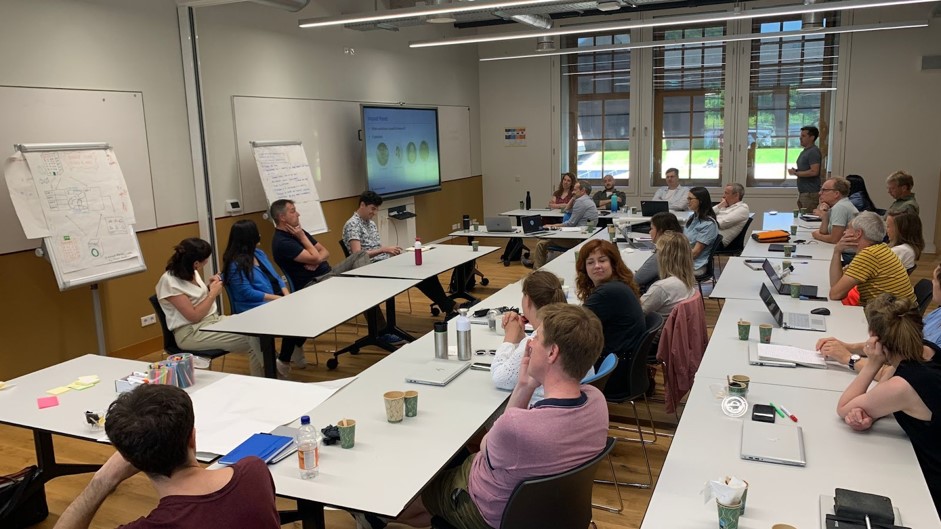
- Gerwin, what is it like for a person with an industry background?
Gerwin: I worked in the logistics industry for my first 10 years, implementing enterprise software and strategy consulting. There I discovered my heart beats faster when creating impact through connecting people, knowledge and technology. For the last 15 years, I have worked closely with businesses and academia on digital innovations in logistics; I think I have worked with almost all Professors in Logistics in the Netherlands. Some of them asked me to go for a PhD, but I have no scientific ambitions: my field of interest is too broad to concentrate multiple years on one particular topic. And I want to see the results of my work back in society; the route via scientific impact is, for me, too indirect. But I really like applied research. And my industry and consulting experience help me to apply a solid demand-driven end-user approach to innovation.
- Adriana, what about you? What is it like for a researcher?
Adriana: As a person with academic experience, I want to take the chance to make a significant impact by connecting academia with industry, fostering research and educational development, and contributing to cutting-edge projects in supply chain management. Working at BISCI offers a unique and exciting experience. Still, it requires an entrepreneurial mindset, adaptability, and a drive to overcome challenges while seizing the abundant opportunities available within the institute. BISCI operates in a pioneering environment with no institutionalised structures, allowing for flexibility and endless possibilities. With missions to bridge the gap between academia and the external world, this is where individuals with an academic background play a crucial role.
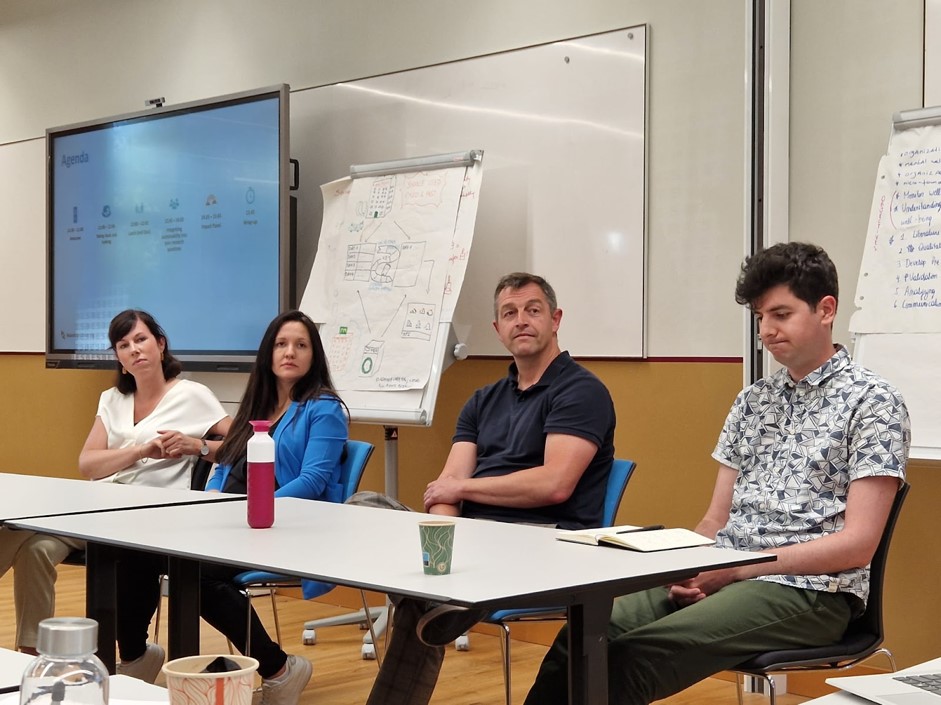
- What are the challenges you face in your work?
Gerwin: Do you have an extra hour? No, seriously, this job is one big 'necklace of challenges'. It starts with convincing the outer world of the added value of an Institute like BISCI. What can we offer that's not yet there? Then, there is the embryonic collaboration between the three knowledge institutes, each with different cultures, different business models, different financial structures and different reasons to join this collaboration. 'Without friction - no shine', we say in the Netherlands; this is indeed the case; luckily, I am not a conflict-averse personality. Then there is this public-private ecosystem with a whole bunch of existing communities with all kinds of vested interests, not always embracing you with open arms. And the funny thing is, I really love this journey!
Adriana: My work lies in tackling the integration of sustainable manufacturing and supply chain innovations from a cutting-edge standpoint, with a focus on nurturing the young generation of students. The young generation of students possesses valuable human capital that requires special attention. And it is challenging! Knowledge resides within individuals, and the conversion of knowledge into practical actions presents a significant challenge in itself. Together with BISCI and MSCM, we are overcoming these obstacles as the organisation acknowledges the need for change and actively pursues business opportunities emerging from these transformations.
- Please give us a sneak peek into a specific project you are working on.
Adriana: Let’s look at the PIONEERS project. It aims to address the challenge of reducing greenhouse gas (GHG) emissions in European ports while remaining competitive. The project involves four ports – Antwerp, Barcelona, Venlo, and Constanta that will implement green port innovation demonstrations in four main areas: clean energy production and supply, sustainable port design, modal shift and flows optimisation, and digital transformation. The project focuses on actions such as renewable energy generation, deployment of electric and hydrogen vehicles, retrofitting of buildings for energy efficiency, and the use of digital platforms for optimising transportation and promoting modal shift. PIONEERS is a project funded by the European Union's Horizon 2020 program.
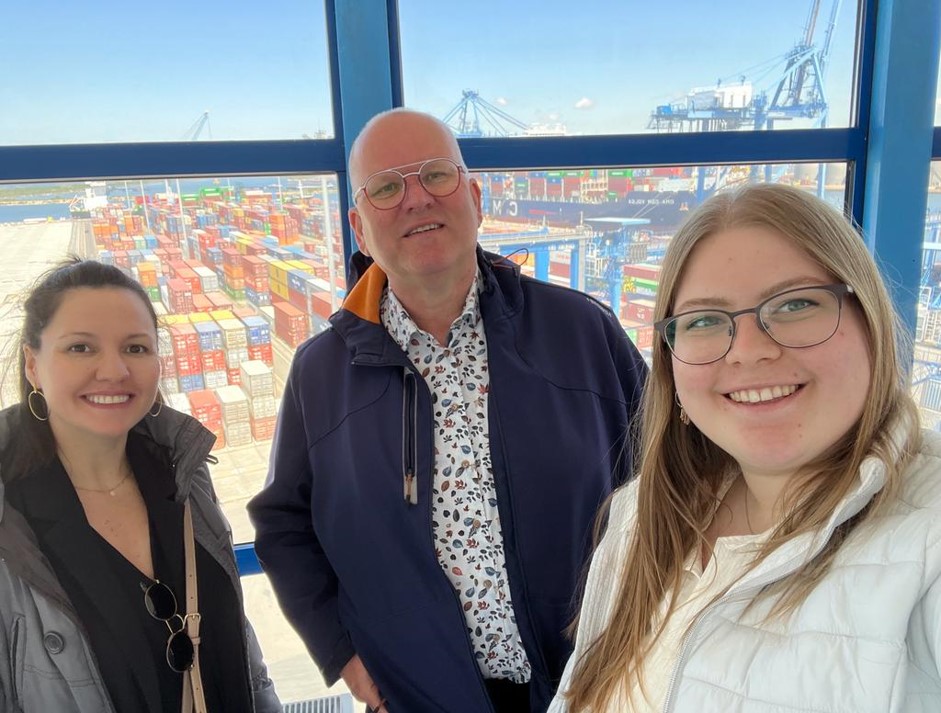
Gerwin: Next to the different port greening innovations, the project also develops Green Port Master Planning. What is needed to become a sustainable zero-emission port by 2050? In Venlo, this long-term planning horizon becomes paramount in n scenario planning what options they could consider in their upcoming Noordoever Port Expansion plans. Should they opt for green energy production and/or storage, anticipate the circular transition and concentrate, for instance, on consolidation and processing of recycling materials, or should they further boost the modal shift from road to inland waterway transport by a second container terminal operator? What framework conditions are needed to attract, for instance, circular-oriented companies? How could we strengthen symbiotic cluster effects - by realising synergies with a strong agrifood cluster or benefitting from Venlo's connectivity to the hydrogen pipeline networks under development? As such, we help Venlo Municipality to develop the knowledge and capabilities to play a proactive role in shaping spatial planning conditions and strategic business development to make it happen.
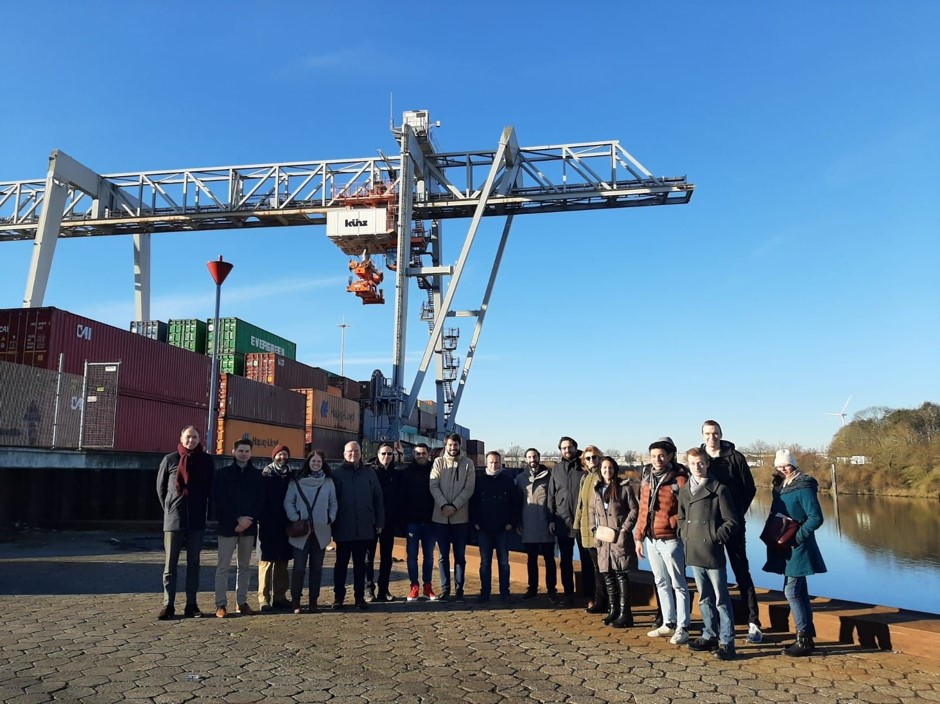
- I think, all these options and questions to answer are another good illustration of the 'necklace of challenges', mentioned by Gerwin. Being at the forefront of driving innovation, how do you see the future of BISCI? And what kind of transformation do you expect in business, education, and people's lives?
Gerwin: We're in this together: business, R&D, education, government and society, starting from the belief that we need to change, collaborate and innovate. From business, this means embracing innovation, willingness to share data in a sovereign way, and actively exploring the business opportunities these transitions can bring. R&D within UM needs to make a shift from 'How can companies help me to create scientific impact? 'to 'How can we design joint R&D in such a way that it contributes to business impact and scientific impact?'. The latter requires a business-centric approach, starting from their needs and challenges. Education should deliver tomorrow's transition leaders and managers, also implying to integrate novel insights on planetary boundaries, true pricing, circular economy principles and corresponding supply chain KPIs into the education programmes. This should all result in changing the behaviour of the people, being the consumers in today's linear economy and becoming the users in tomorrow's circular economy.
Most societal challenges we face are complex and multi-dimensional; think of respecting the planetary boundaries of our global economy, the challenges of transition towards a circular economy, and the challenge of reaping the benefits of digital transformation without opening the doors for misuse. I'm pretty convinced supply chain management plays a crucial role in guiding these transitions in the right direction and accelerating the merits of these transitions for the sake of humanity and our planet. And this can only work well in an open ecosystem innovation approach as we orchestrate in BISCI. If the 'BISCI' model appears to be an effective mechanism to crack these wicked problems, BISCI can grow enormously in terms of people and impact. The scientific impact grows in the wake of this.
Adriana: We actively contribute to the ongoing transformation of businesses by promoting innovation and sustainable alternatives. We advocate for a shift in the R&D mindset, emphasising the importance of designing joint initiatives that generate both business and scientific impact. Recognising the significance of education, we prioritise the development of future leaders who possess the necessary knowledge and insights for driving sustainable transitions, particularly the shift from a linear to a circular economy. To achieve this, we integrate novel concepts and principles related to planetary boundaries, circular economy, and supply chain sustainability into our educational programs.
I envision the future of BISCI as a catalyst for collaboration and innovation among businesses, R&D, education, government, and society. It plays a crucial role in facilitating the transition towards sustainable business ecosystems and tackling the challenges posed by planetary boundaries. Recognising the imperative for change, BISCI actively explores business opportunities that arise from these transformative processes.
- Thank you for the insightful conversation! It does feel like such organizations like BISCI, powered by visionary minds, are bringing us to a better future. Some final words?
Adriana: When it comes to education, scientific impact, and BISCI journey, I would like to paraphrase a statement that I often share with my students embarking on the research pathway: “Once, when asked to give his definition of genius, Mr. Thomas Edison replied: 'Two per cent is genius and ninety-eight per cent is hard work’.”
Gerwin: So let the hard work not feel like a burden but as an exciting and rewarding journey! Don’t focus too much on the ‘destination’, which may sometimes be disappointing or frustrating; rather, enjoy the transition journey and have fun!
Also read
-
More than a student job: five alumni about their unique role in groundbreaking vascular research
What is it like to take part in cutting-edge vascular research as a student, standing in the operating room, directly responsible for handling patient material? Five alumni of the Maastricht MAPEX student team share what they learned, the challenges they faced, and how this experience shaped their...

-
SoundLab
On September 19, 2025, the MCICM introduced a new form of interactive audience participation, the Sound Lab.
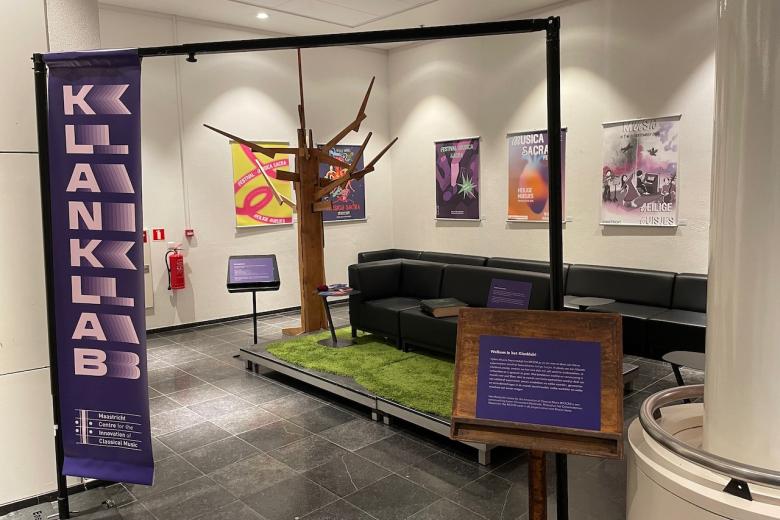
-
MA European Public Affairs Turns 25 – Alumni Celebrate in Brussels
Maastricht University recently celebrated the 25th anniversary of its European Public Affairs Master’s programme (MA EPA) with a large alumni gathering in Brussels. The event, held on 30 October at Au Bassin, welcomed more than 120 alumni from across 25 graduating cohorts — from the first class in...
